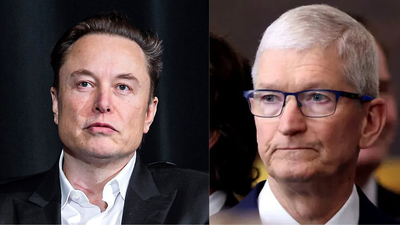
In a dramatic turn of events, Elon Musk’s Starlink satellite service, once firmly rejected by Apple, has now become an unexpected ally for the tech giant’s iPhones. Back in 2022, Musk reportedly offered Apple a $5 billion deal to integrate Starlink into their devices, a proposal CEO Tim Cook declined. Years later, Apple users are accessing Starlink’s “Direct to Cell” network via T-Mobile, giving iPhones satellite-powered connectivity that Apple initially tried to avoid. What started as a threat has turned into quiet reliance, highlighting the complex power dynamics between two of the biggest names in tech.
Elon Musk’s $5 billion ultimatum to Tim Cook
In 2022, Musk delivered a bold offer. Either Apple would invest $5 billion into Starlink integration or face Starlink as a direct competitor. The call to Tim Cook was not just a business pitch, it was an ultimatum. Musk gave Apple 72 hours to decide. When Cook declined, Musk quickly launched his own plan to dominate satellite-based mobile connectivity.
Apple’s quiet abandonment of its own satellite dream
Years before Musk’s proposal, Apple had its own satellite ambitions under Project Eagle, a collaboration with Boeing to create a proprietary internet service. However, concerns over regulatory hurdles and upsetting telecom partners such as AT&T and Verizon caused the project to be shelved. Apple instead chose a safer route by partnering with Globalstar for a limited SOS satellite feature.
Musk’s Starlink moves ahead
While Apple stepped back, Musk advanced. Just weeks before the iPhone 14 launch, Musk announced a partnership with T-Mobile to bring Starlink’s “Direct to Cell” service to life. This meant users could access mobile internet from anywhere on Earth, even remote mountains and oceans, without requiring any special hardware.
Irony in the sky: iPhones now use Starlink
Despite rejecting Musk’s offer, Apple devices can now access Starlink through T-Mobile’s network. The very satellite system Apple dismissed is now helping power iPhones in remote locations. Some observers have called this “revenge from orbit,” showing how tech rivalries can circle back in unexpected ways.
Strategic caution or missed opportunity?
Apple’s decision remains a topic of debate in the tech industry. Some view Cook’s move as strategic caution, avoiding dependence on a volatile innovator like Musk. Others see it as a missed opportunity to lead in satellite connectivity. Either way, the skies now belong to Starlink, and iPhones are connected to it whether Apple planned it or not.












